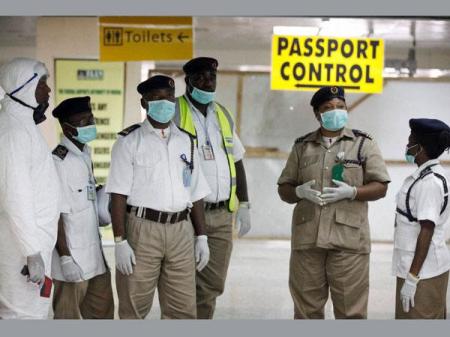
The Interior Ministry in Dakar announced last week that it would seek to shut off access to Guinea, which borders the southeast of Senegal over fears that Viral Haemorrhagic Fever, better known as Ebola, which is known to have killed some 1,400 people in West Africa since March, could find its way into the country. Senegal is also imposing strict controls on maritime traffic from Guinea, Liberia, Nigeria and Sierra Leone.
Dakar is a regional hub for West Africa and many doctors and medical supplies arriving from Europe or the US pass through there before going to and returning from the affected countries. The World Health Organization has expressed concerns over whether a travel ban might negatively impact aid work. In response, Senegal’s Health Minister Dr Eva Marie Colle Seck told the BBC the travel ban would not affect humanitarian flights, and that the WHO was “learning, like everybody [else]“.
A number of African nations are taking steps to prevent transmission of the virus, including now South Africa, which has issued a travel ban for travellers from Ebola-hit countries and told South African citizens returning from these countries they would be questioned, and screened if necessary.
Liberia in particular has struggled in recent days with a surge in cases. The World Health Organization (WHO) has counted 972 confirmed cases and 576 deaths in the country, warning that many more cases might remain undiagnosed. UN spokesman on the epidemic, David Nabarro, said on arrival in the region that the outbreak’s spread was difficult to predict.
“We’re either close to a plateau, but then we’ll drop; or we’re in a phase – an inflection point – where it is going to increase, and I absolutely cannot tell,” Nabarro told the AFP news agency last week on a stopover at Conakry airport en route to Monrovia. Nabarro said he was determined to “ensure that every piece of our apparatus is at its optimum so it could deal possibly with a flare-up, if that’s necessary.”
British physician Nabarro, who was appointed by the UN to coordinate the international response to Ebola, was due to visit Freetown, Sierra Leone; Conakry, Guinea; and Abuja, Nigeria during his trip to the region. After visiting the affected countries, Nabarro will return to Geneva and New York to report on his findings.
The virus’ spread has severely tested medical infrastructure and staff in West Africa. The Red Cross office in Liberian, for instance, warned that the crematorium in Monrovia was struggling to deal with the bodies being brought in each day. Cremation is an important step in efforts to contain the spread of the infectious disease, which is passed on through contact with bodily fluids. President Ellen Johnson Sirleaf imposed a curfew and ordered a quarantine zone for the capital Monrovia’s West Point slum earlier in the week, prompting protests in the district of around 75,000 people.
There is not currently a vaccine or accepted treatment for Ebola, but the WHO intends to debate the safety and efficacy of experimental medications at a meeting in Geneva next month. Two US missionaries who contracted Ebola while treating patients in Liberia have left hospital after making a full recovery. Both received an experimental drug called ZMapp during treatment, but it is not yet clear whether the medication contributed to their recovery. A British nurse who contracted the disease in Sierra Leone is undergoing treatment, including the administering of ZMapp, at London’s Royal Free Hospital.
IMAGE: Senegal.jpg
CAPTION: Senegal is keen to seal off its border with Ebola-hit Guinea










